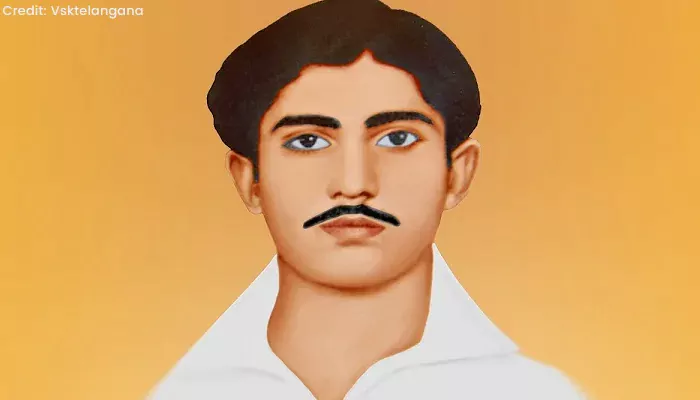
At 19, he tried to stop a British troop train—and refused to name his comrades
History often skips over those who die young, but sometimes, a teenager's bravery can shake the very foundations of an empire. Hemu Kalani, a young man of only 19 from Sukkur in Sindh, was one such inspiring figure—an unrecognised freedom fighter whose story has been hidden beneath clichés, prejudice, and the cultural forgetfulness of Partition.
Kalani's name might not appear in textbooks or Independence Day celebrations, but his brave last act—attempting to stop a train carrying British soldiers—deserves to be remembered and celebrated. It's a story that should be forever part of our collective memory.
Born on March 23 1923, into a humble yet politically conscious Sindhi Hindu family, Hemu Kalani grew up amid whispers of revolution. His father, Pesumal Kalani, was a member of the Indian National Congress, and his home was no stranger to underground meetings or banned literature. Hemu's education was marked by nationalist zeal—he read Gandhi, listened to Nehru, and established his own moral compass early.
By the time the Quit India Movement erupted in 1942, Kalani was already part of the Swaraj Sena, a student group actively engaged in civil disobedience. But when news arrived that a British military train transporting arms would pass through Sukkur, Kalani and his comrades made a perilous decision. They resolved to sabotage the tracks.
The aim was bold but straightforward: to delay the British, disrupt the supply chain, and deliver a symbolic blow in support of Gandhi's 'Do or Die' call.

Credit: Great Peoples
Kalani and his friends had no tools—just rope, courage, and crude strategy. They tied the tracks in a makeshift blockade, hoping to derail the train. But British intelligence caught wind of the plot. Hemu was arrested before the plan could succeed.
At his trial, the colonial court offered clemency if he would name his co-conspirators. He refused.
That silence cost him his life.
On January 21, 1943, Hemu Kalani was hanged at Sukkur Jail. He died clutching his ideals, refusing to betray his fellow revolutionaries—even though he was barely old enough to vote.
In the aftermath of independence, the newly drawn borders erased more than just geography. When Sindh became part of PAK, its Hindu population—including families like Kalani's—was displaced. The memory of Hemu Kalani, along with thousands of stories from Sindh's contribution to India's freedom struggle, was left behind.
In India, the cultural stereotyping of Sindhis as apolitical traders has further obscured Kalani's legacy. In PAK, his faith rendered him invisible to official histories. A few statues, a postage stamp, and a brief chapter in local lore are all that remain.
But the silence is not accidental — it is systemic. Kalani's story challenges the neat nationalist narratives that prefer heroes from Bengal, Punjab, or Maharashtra. A Sindhi teen who died for India complicates that mythology. And so, he was forgotten.

Credit: Mint
Today, as fractured identities seek to heal across borders, remembering Hemu Kalani is not just an act of homage—it's an act of resistance. His story demonstrates that patriotism in Sindh was neither marginal nor mythical. It was lived, suffered, and often erased.
Kalani's martyrdom should be taught not as a footnote but as a testament—an unyielding boy who refused to name names, a teenager who faced the noose with dignity, and a son of Sindh whose love for his country shattered all boundaries.
History owes him more than silence. It owes him the truth.